2024 U.S. Election: Shaping America's Future
Nov
06
On November 5, experts and community members gathered for a roundtable discussion on the key issues shaping the 2024 U.S. presidential election, as part of the International Seasons cultural event series. Hosted by the University of Pécs and the American Corner Pécs, the panel included American Fulbright Scholar Dr. Alexandra Ravano, political science professor from the Department of Political Science and International Studies, Dr. Zoltán Bretter, and Dr. Tamás Pólya associate professor at the Department of Communication- and Media Sciences, moderated by Dr. Zoltán Vörös, associate professor and director of the Center for Supporting Digital Teaching and Learning.
The discussion began with reflections on the "Big Swap" - Joe Biden’s withdrawal from the race and Kamala Harris's subsequent entry as the Democratic candidate. Dr. Alexandra Ravano recalled the public reaction during the transition, explaining, “Many people were not enthusiastic about voting for Biden, especially after his lackluster debate performance against Trump. Kamala Harris, however, reinvigorated the Democratic base, especially among younger voters, who responded to her active social media presence.” This shift reinvigorated the campaign, forcing Republicans to recalibrate their strategies.
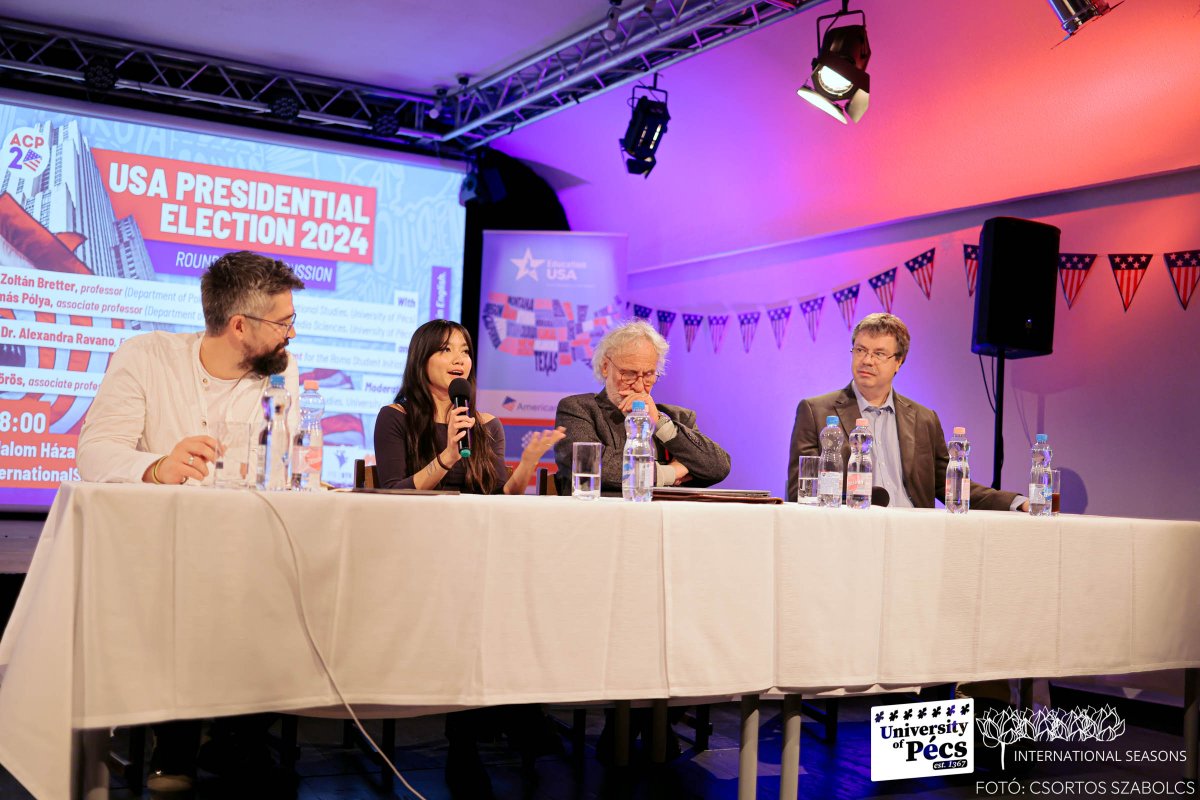
Dr. Zoltán Bretter addressed the challenges Harris faced in defining herself, noting that her time as Vice President left her with a somewhat ambiguous public image. "As Vice President, she didn’t show much of her own political stance, making it harder for her to be immediately recognized as a strong presidential candidate," he remarked. However, the contrast between the young and energetic Harris and the seasoned, older Trump helped reframe the Democratic message and position Trump as increasingly out of touch.
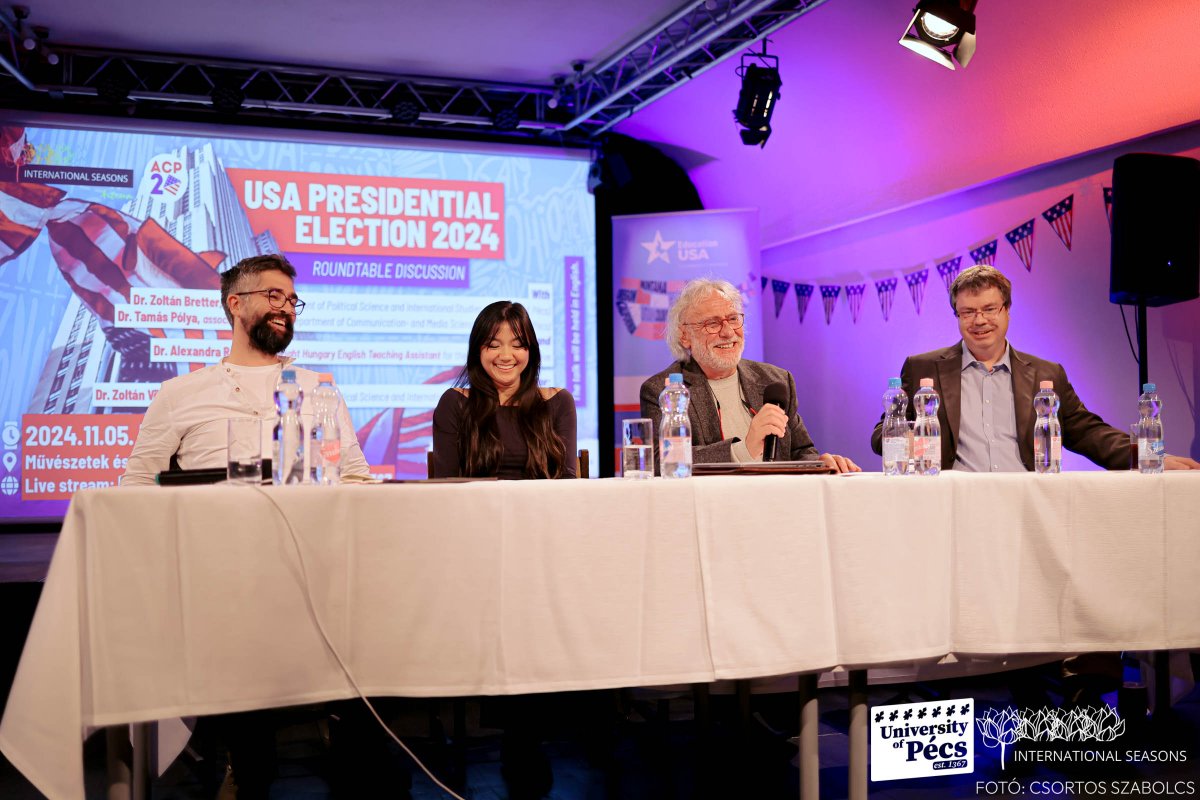
The panel also examined the cultural divides influencing the election. Dr. Tamás Pólya highlighted competing visions of American identity: one emphasizing inclusivity and equality, the other focused on preserving traditional values. He noted, “Trump’s vision of a homogeneous American culture contrasts sharply with the inclusive vision embodied by Harris’s campaign, creating a fundamental clash of ideals.” This divide is reshaping voter alignments, with far-reaching implications beyond the election itself.
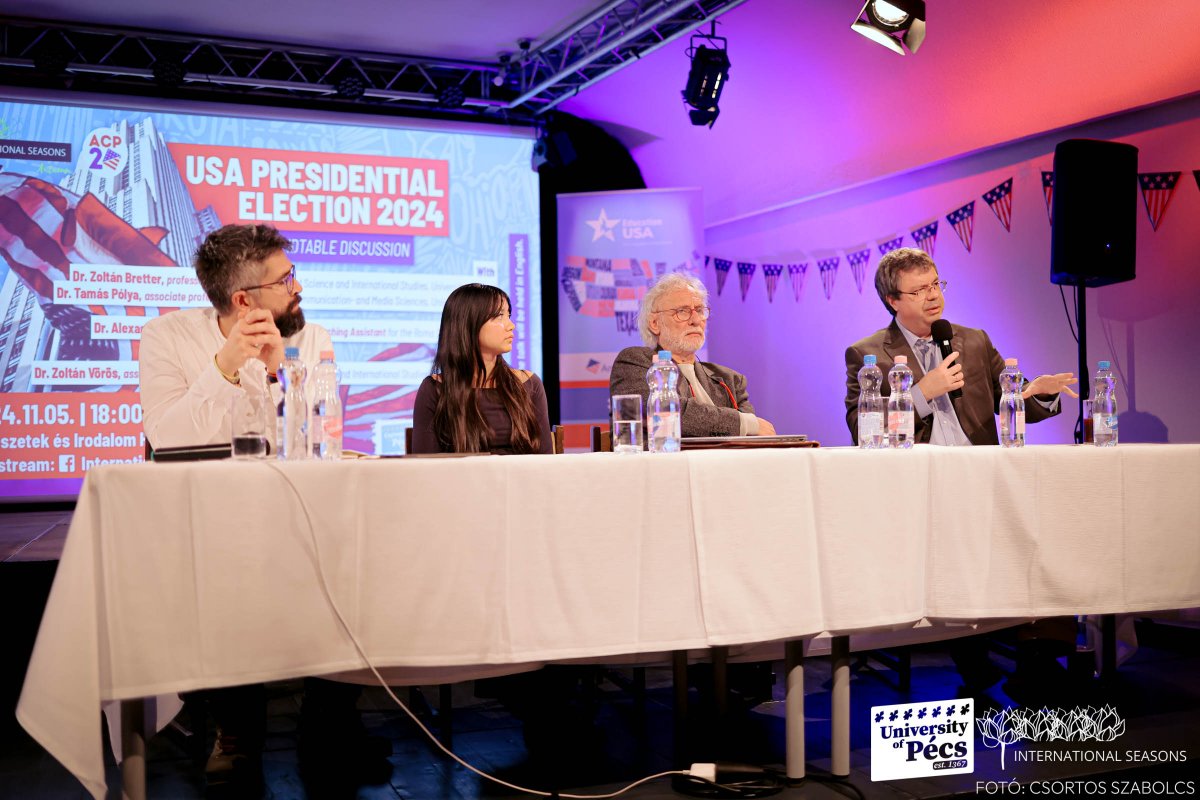
The conversation then turned to the assassination attempt on Trump. Dr. Alexandra Ravano recalled the heightened polarization this incident caused among undecided voters, explaining, “That moment solidified Trump’s support base.” The attack underscored the volatile and unpredictable nature of the campaign, where unforeseen events only deepened partisan divides and altered voter sentiment.
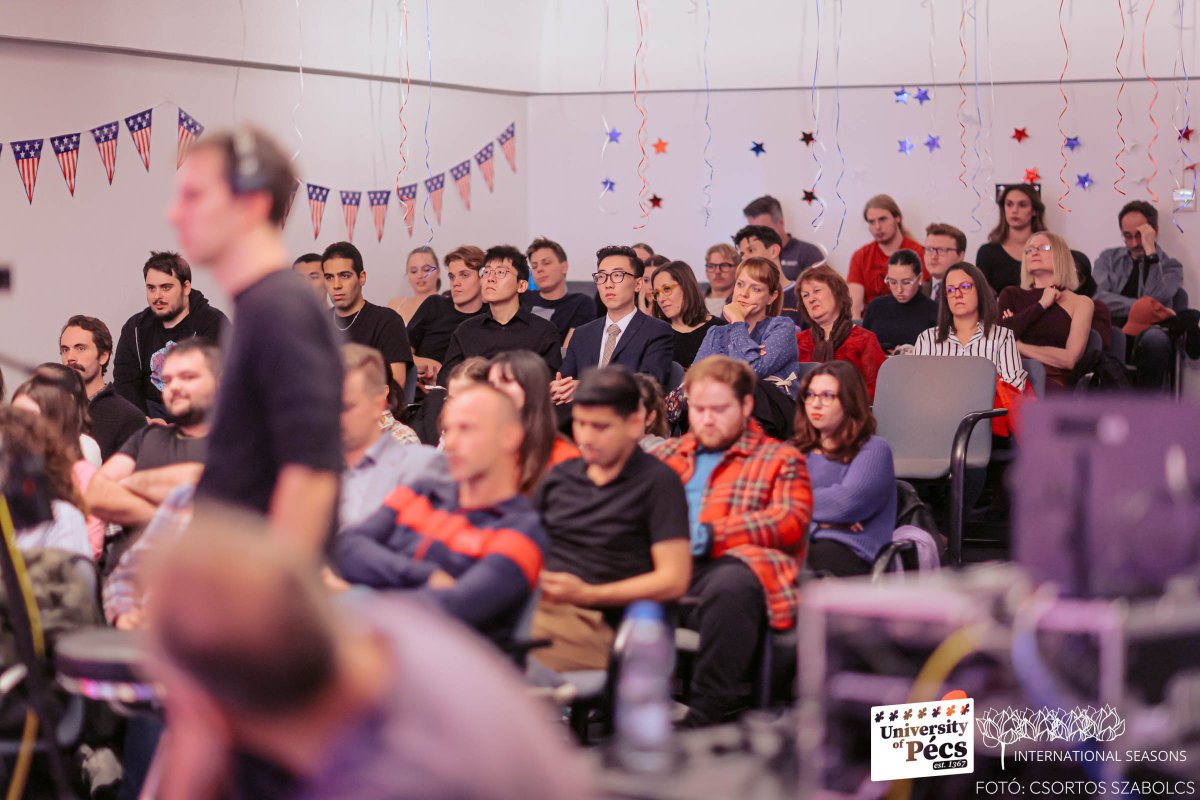
In discussing the media’s role, Dr. Tamás Pólya observed generational shifts in Latino media consumption, noting that third-generation Latino Americans tend to consume primarily English-language media. This indicates a deeper integration into mainstream American society, a trend that parallels the Jewish immigrant experience in the U.K. in the early 20th century, where established communities helped newcomers adapt.
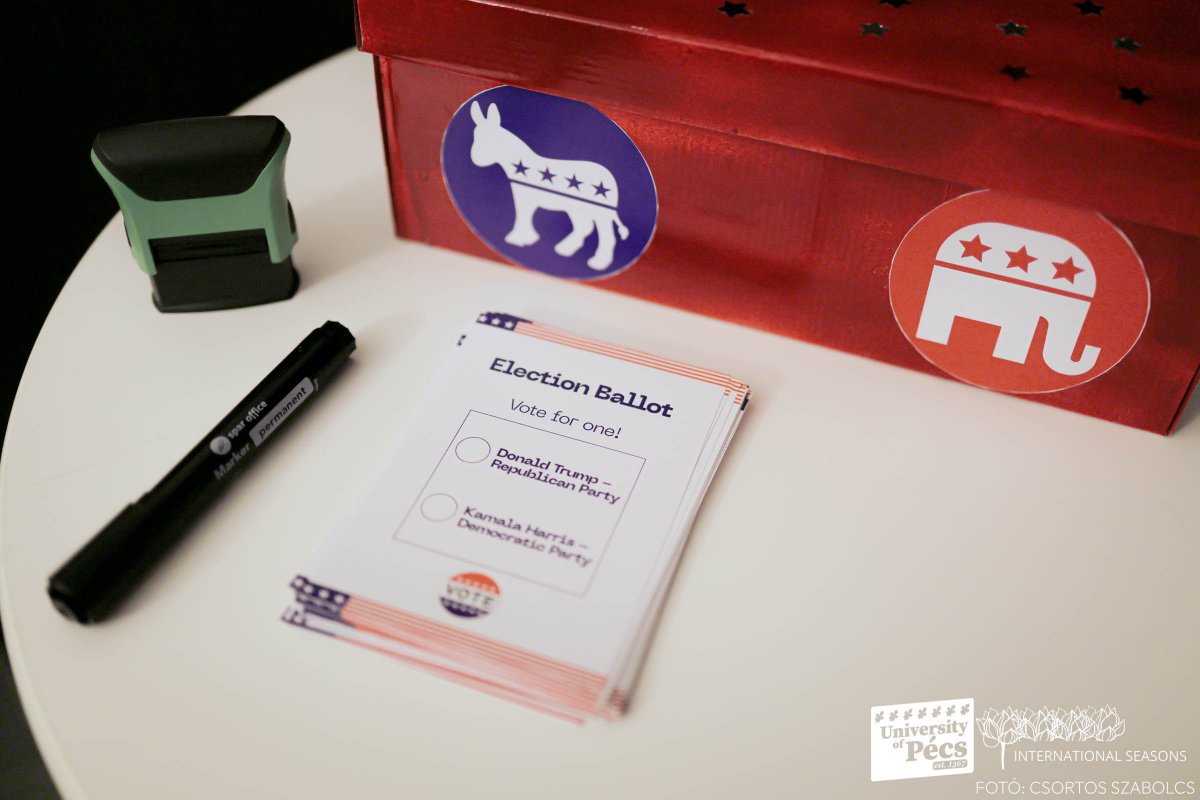
The event concluded with reflections on how cultural and generational shifts may shape future elections. According to Dr. Zoltán Bretter, Harris’s success in mobilizing young voters could pave the way for more diverse representation in American politics, especially as issues like identity, immigration, and media continue to play crucial roles.
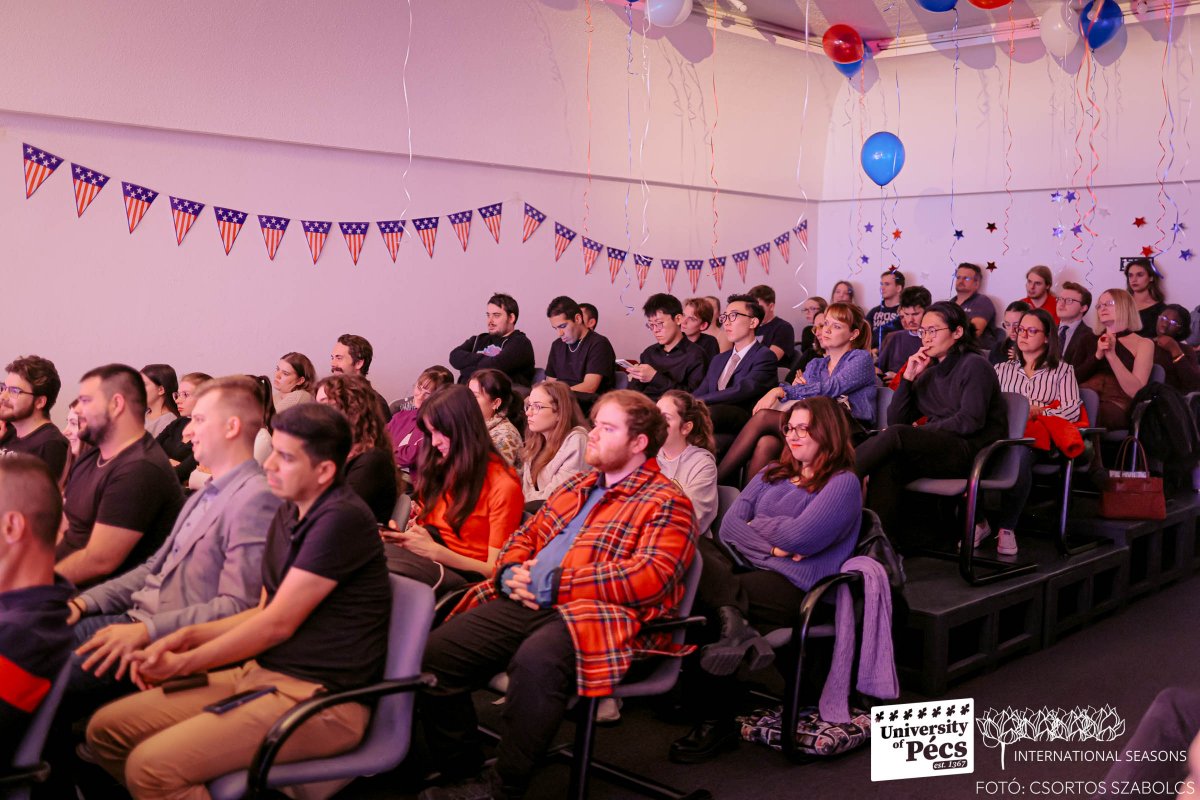
As the discussion wrapped up, it became clear that the 2024 election is not merely a race between candidates, but also a battleground of competing visions of America’s future.

